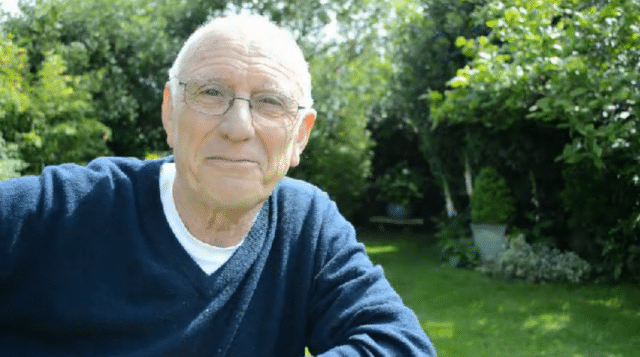The DeSmog UK epic history series turns to Richard D North, an environmental journalist who later took money from ExxonMobil, placing blame on consumers rather than fossil fuels for causing climate change.
During the ‘90s and early 2000s, ExxonMobil money was being refined through the London-based offices of free market think tank the Institute of Economic Affairs (IEA) before sloshing into the pockets of British journalists, including one admired environmental correspondent.
Richard D North was editor of the radical Vole magazine, the first environment editor hired by the left-liberal Independent newspaper, and “was one of the most respected environment correspondents in the 1980s.”
But then, inextricably, he had a change of heart and by 1995 had “become an apologist for industry”.
Some years later, he wrote an article for the Evening Standard arguing there was no hope of averting climate change so we should not accuse politicians of using the issue as “a tax-raising wheeze”. North was described at the end of the article as a fellow of the IEA.
ExxonMobil Grant
A set of accounts that I discovered buried deep in the digital archive at Companies House revealed that a £21,000 stash was being handled for the author.
“The ExxonMobil Fund is a research grant for Richard North” described accounts filed by the IEA.
North confirmed via email: “Exxon’s grant… was given towards general and continuing work I had been engaged on for several years. It was not for any specific project, but simply toward on-going research I did on broad themes around capitalism, free markets, intellectual property, consumerism, climate change and corporate social responsibility.”
This work included his book, Rich is Beautiful. North said: “I am afraid I don’t intend to get into an explanation of how I earn my living and how much corporate funding I have had. My job is to play fair by my readers, and I have always done that.”
Don’t Blame Fossil Fuels
Rich is Beautiful is a curious book published by the Social Affairs Unit, an offshoot of the IEA funded by British American Tobacco. In his book, North argues that Exxon should not be blamed for the fact that fossil fuels are causing climate change but instead we should look to the drivers and customers that choose its products.
It’s a deeply pessimistic prognosis based on Hayek’s claims that shoppers send ‘signals’ to producers through money, allowing industry to abdicate all responsibility for the environmental impacts of their production.
North wrote: “It is for the people who drive cars to worry about their emissions, not for the oil companies who supply their fuel… Nor is it remotely clear why, say, oil firms should invest in renewable energy systems.
“Oil firms did not ‘cause’ global warming, and they have no obligation to ‘cure’ it… Bullying oil companies to get involved must merely mean making them do something they don’t want to do, which will mean that a politician (or an NGO – Non-Governmental Organisation – campaigner) is insisting on the right to spend shareholders’ money.”
Corporations over Campaigners
In the book, the journalist is entirely frank about taking money from vested interests. He explains: “I prefer corporations to campaigners… If I was offered a weekend in New York, I’d take it if the tickets were business class, and refuse if the tickets were tourist (even though I believe that more space equals more global warming, mile for mile).
However, it would be wrong to assume that North merely took this cynical view to earn a corporate dime. Instead, it appears to reflect a deep malaise and disgust at fellow human beings.
He wrote, in his book, about beauty: “I am inclined to think that the poor in the rich world are either stupid or lazy or both, and may soon constitute an embarrassing troubling underclass.”
He then concludes: “On a bad day, people seem ‘needy’ and whining and self-pitying… I am often afflicted with an intense dislike of my fellow man. Sprawling, raucous, mewling and semi-naked as they are, I find them terribly low.”
An amateur psychologist might suggest that this horror at the grotesqueness of humankind was, in fact, a symptom of self-loathing, and would assume this was the result of living off corporate donations and betraying his own values.
The IEA, in this instance at least, acted as a conduit to funnel oil money to an environmental journalist who was willing to raise various doubts about climate change and our ability to avert the crisis at the cost of the oil industry.
Our next DeSmog UK epic history post recalls the transatlantic effort by the European sceptic Benny Peiser and Washington lawyer Chris Horner to bring down the Kyoto Protocol.
Photo: Screengrab via Amazon
Subscribe to our newsletter
Stay up to date with DeSmog news and alerts







